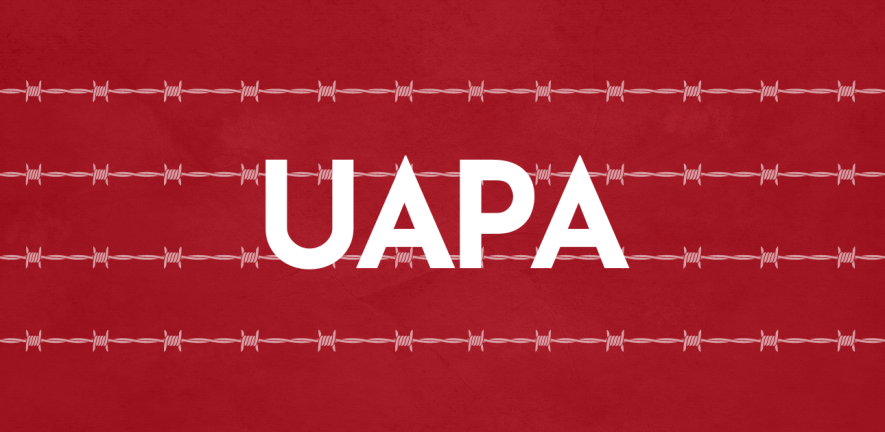Safeguards Under the UAPA: Section 43A and 43B

In the early months of 2024, two important legal rulings addressed the protections for individuals arrested under the stringent Unlawful Activities Prevention Act of 1967 (UAPA).
In the case of Prabir Purakasthya versus State (NCT of Delhi), the Supreme Court, with Justices B.R. Gavai and Sandeep Mehta presiding, declared NewsClick founder Prabir Purkayastha’s arrest and remand illegal and void due to the failure to provide written grounds for his arrest.
This violation of Article 22 of the Indian Constitution and Section 50 of the Code of Criminal Procedure (CrPC) led to his release on bail.
In a separate ruling, the Nagpur Bench of the Bombay High Court, in Mahesh Kiriman Tirki and Ors versus State of Maharashtra, acquitted Professor G.N. Saibaba and five others.
The court critically examined the police’s handling of evidence, the absence of prosecution sanction under the UAPA, and the failure to comply with statutory safeguards for arrest under the UAPA.
The Supreme Court, with Justices B.R. Gavai and Sandeep Mehta presiding, declared NewsClick founder Prabir Purkayastha’s arrest and remand illegal and void due to the failure to provide written grounds for his arrest.
While the first judgment focused on the legality of the arrest and remand, the latter was a thorough acquittal under the UAPA. This piece, however, concentrates on the aspects related to the non-adherence to statutory safeguards against arrest and detention under the UAPA.
In this piece, I argue that the judgments in Prabir Purakasthya and Mahesh Tirki are significant as they put checks on the power of the police to arrest a person under the stringent UAPA, where getting bail is a tumultuous task.
Prabir Purakasthya
On October 3, 2023, extensive raids were carried out at the residential and official premises of Prabir Purakasthya and his news company, namely, M/s PPK Newsclick Studio Pvt Ltd.
This action stemmed from FIR no. 224 of 2023, dated August 17, 2023, registered at the special cell police station in New Delhi. The charges included violations of Sections 13, 16, 17, 18, and 22C of the UAPA, as well as Sections 153A and 120B of the Indian Penal Code, 1860 (IPC).
Later that evening, Purakasthya, along with Newsclick’s human resource head, Amit Chakraborty, were arrested by the police.
Later Chakraborty became an approver and was granted pardon by the trial court. He withdrew his petition which he had filed along with Purakasthya challenging his arrest and remand, from the Supreme Court after he was granted pardon. He was later granted bail by the Delhi High Court.
On October 4, 2023, Purakasthya was brought before the additional sessions judge 2, Patiala House, New Delhi, before 6:00 a.m. (As per Section 57 of the CrPC, a person arrested by the police has to be produced within 24 hours before the nearest magistrate.)
He was remanded to police custody for seven days as per an Order dated October 4, 2023. Notably, he was not informed of the grounds of his arrest, and his lawyer, who had met him in police custody, was absent during this process as he was not informed about the early morning production.
Subsequently, his lawyer was informed but by that time the remand Order had already been passed, sending Purakasthya to seven days of police custody. The non-supply of the grounds of arrest to Purakasthya or his counsel became a bone of contention.
Purakasthya challenged his arrest and remand before the Delhi High Court based on this technicality. It was argued that since the grounds of arrest had not been communicated either orally or in writing, such action was in gross violation of the constitutional mandate under Article 22(1) and Section 50 of the Code of Criminal Procedure, 1973.
The Delhi High Court upheld the trial court’s decision to remand Prabir Purkayastha to police custody. The high court held that the judgment in Pankaj Bansal versus Union of India, which interpreted the provision of Section 19(1) of the Prevention of Money Laundering Act, 2002 (PMLA) in the light of Article 22 of the Constitution and held that it is necessary that a copy of the grounds of arrest be furnished in writing to the arrested person as a matter of course and without exception, was not squarely applicable to arrests made under the UAPA.
Purkayastha challenged the high court’s Order in the Supreme Court and the legality of the remand proceedings was fiercely criticised by his counsel, alleging manipulation, including the suspicion of later insertion of Purakasthya’s advocate’s appearance in the remand Order to cover up the illegality.
In the Supreme Court as well, reliance was placed upon Pankaj Bansal. It was argued that Section 19(1) of the PMLA is pari materia to the provisions contained in Section 43B(1) of the UAPA, hence the ratio of Pankaj Bansal will also apply to arrests under the UAPA.
On October 3, 2023, extensive raids were carried out at the residential and official premises of Prabir Purakasthya and his news company.
Section 19 of the PMLA and Sections 43A and 43B of the UAPA read as under:
Section 19 of the PMLA: “Power to arrest: (1) If the director, deputy director, assistant director or any other officer authorised on this behalf by the Union government by a general or special Order has, on the basis of material in his possession, reason to believe (the reason for such belief to be recorded in writing) that any person has been guilty of an offence punishable under this Act, he may arrest such person and shall, as soon as may be, inform him of the grounds for such arrest.”
Section 43A of the UAPA: “Power to arrest, search, etc.: Any officer of the designated authority empowered in this behalf, by general or special Order of the Union government or the state government, as the case may be, knowing of a design to commit any offence under this Act or has reason to believe from personal knowledge or information given by any person and taken in writing that any person has committed an offence punishable under this Act or from any document, article or any other thing which may furnish evidence of the commission of such offence or from any illegally acquired property or any document or other article which may furnish evidence of holding any illegally acquired property which is liable for seizure or freezing or forfeiture under this chapter is kept or concealed in any building, conveyance or place, may authorise any officer subordinate to him to arrest such a person or search such building, conveyance or place whether by day or by night or himself arrest such a person or search such building, conveyance or place.”
Section 43B of the UAPA: “Procedure of arrest, seizure, etc.: (1) Any officer arresting a person under Section 43A shall, as soon as may be, inform him of the grounds for such arrest.”
In Pankaj Bansal, the Supreme Court, after an elaborate consideration of the provisions contained in the PMLA, the CrPC and the constitutional mandate as provided under Article 22 held as below:
“In this regard, we may note that Article 22(1) of the Constitution provides, inter alia, that no person who is arrested shall be detained in custody without being informed, as soon as may be, of the grounds for such arrest.
“This being the fundamental right guaranteed to the arrested person, the mode of conveying information of the grounds of arrest must necessarily be meaningful so as to serve the intended purpose. It may be noted that Section 45 of the Act of 2002 enables the person arrested under Section 19 thereof to seek release on bail but it postulates that unless the twin conditions prescribed thereunder are satisfied, such a person would not be entitled to grant of bail.
“The twin conditions set out in the provision are that, firstly, the court must be satisfied, after giving an opportunity to the public prosecutor to oppose the application for release, that there are reasonable grounds to believe that the arrested person is not guilty of the offence and, secondly, that he is not likely to commit any offence while on bail.
“To meet this requirement, it would be essential for the arrested person to be aware of the grounds on which the authorised officer arrested him/her under Section 19 and the basis for the officer’s ‘reason to believe’ that he/she is guilty of an offence punishable under the Act of 2002.
“It is only if the arrested person has knowledge of these facts that he/she would be in a position to plead and prove before the special court that there are grounds to believe that he/she is not guilty of such offence, so as to avail the relief of bail.
Purakasthya, along with Newsclick’s human resource head, Amit Chakraborty, were arrested by the police.
“Therefore, communication of the grounds of arrest, as mandated by Article 22(1) of the Constitution and Section 19 of the Act of 2002, is meant to serve this higher purpose and must be given due importance.”
The court also noted that the language of Section 19 puts it “beyond doubt” that the authorised officer has to record in writing the reasons for forming a belief that the arrested person is guilty of an offence punishable under the PMLA.
The court further elucidated, “There is no valid reason as to why a copy of such written grounds of arrest should not be furnished to the arrested person as a matter of course and without exception.
“There are two primary reasons as to why this would be the advisable course of action to be followed as a matter of principle. Firstly, in the event such grounds of arrest are orally read out to the arrested person or read by such person with nothing further and this fact is disputed in a given case, it may boil down to the word of the arrested person against the word of the authorised officer as to whether or not there is due and proper compliance in this regard.
“The second reason as to why this would be the proper course to adopt is the constitutional objective underlying such information being given to the arrested person. Conveyance of this information is not only to apprise the arrested person of why he/she is being arrested but also to enable such person to seek legal counsel and, thereafter, present a case before the court under Section 45 to seek release on bail, if he/she so chooses.
“The very purpose of this constitutional and statutory protection would be rendered nugatory by permitting the authorities concerned to merely read out or permit reading of the grounds of arrest, irrespective of their length and detail, and claim due compliance with the constitutional requirement under Article 22(1) and the statutory mandate under Section 19(1) of the Act of 2002.
“On the above analysis, to give true meaning and purpose to the constitutional and the statutory mandate of Section 19(1) of the Act of 2002 of informing the arrested person of the grounds of arrest, we hold that it would be necessary, henceforth, that a copy of such written grounds of arrest is furnished to the arrested person as a matter of course and without exception.”
The State’s primary arguments were twofold: firstly, that the judgment in the would only apply prospectively. Though it was passed on October 3, a copy of the Order was uploaded on the website only on October 4, after Purakasthya had already been remanded to police custody.
Hence, its principles cannot be invoked in Purakasthya’s defence. Secondly, there are certain discrepancies in the provisions outlined in Section 19 of the PMLA compared to Sections 43A and 43B of the UAPA.
The Supreme Court addressed both arguments and upon reviewing Section 19 of the PMLA alongside Sections 43A and 43B, concluded that these Sections are indeed comparable.
Later Chakraborty became an approver and was granted pardon by the trial court.
The court noted that the requirement for communicating the grounds of arrest to the arrested individual, as outlined in Section 43B(1) of the UAPA, is identical to that in Section 19(1) of the PMLA.
Moreover, both provisions derive their value from the constitutional safeguard provided under Article 22(1) of the Constitution of India.
Additionally, the court observed that the modified application of Section 167 of the CrPC was also consistent across both statutes. Consequently, the court ruled that the interpretation of the statutory mandate as observed in Pankaj Bansal must equally apply to individuals arrested under the UAPA.
In Paragraph 20, the court stated unequivocally that any person arrested on allegations of committing offences under the UAPA, or any other offence, has both a fundamental and statutory right to be informed in writing about the grounds of their arrest.
A copy of these written grounds must be provided to the arrested individual without exception and at the earliest opportunity. This right to be informed about the grounds of arrest emanates from Article 22(1) of the Constitution of India, and any violation of this fundamental right would invalidate the arrest and remand process.
Furthermore, the court distinguished between the ‘reasons for arrest’ and the ‘grounds for arrest’. Upon examining Purakasthya’s arrest memo, the court noted that what was recorded in the memo were the reasons for arrest, not the grounds for arrest.
The reasons for arrest are more formal and generally apply to any person arrested on criminal charges. In contrast, the ‘grounds for arrest’ must include all specific details that necessitated the arrest of the accused, which are in the possession of the investigating officer.
When provided in writing, the ‘grounds for arrest’ must convey to the accused all fundamental facts on which they are being arrested. This enables the accused to defend themselves against custodial remand and to seek bail. Therefore, the ‘grounds for arrest’ are inherently personal to the accused and cannot be equated with the ‘reasons for arrest’, which are more general.
Mahesh Tirki and Ors
In March 2024, a division Bench of the Bombay High Court’s Nagpur Bench acquitted Mahesh Tirki, Professor G.N. Saibaba and four others who were facing charges under the UAPA.
Subsequently, Purakasthya’s lawyer was informed but by that time the remand Order had already been passed, sending Purakasthya to seven days of police custody.
The charges included membership and support to a terrorist organisation, conspiracy to commit terrorist acts and unlawful activities. Specifically, they were accused of affiliation with the banned Communist Party of India (Maoist) and its affiliated group Revolutionary Democratic Front.
This marked their second acquittal by the Bombay High Court’s Nagpur Bench. Previously, in October 2022, the high court had acquitted them due to the prosecution’s failure to fulfill the mandatory sanction-to-prosecute requirement under the UAPA.
On an appeal by the Maharashtra government, the Supreme Court constituted a special Bench, which sent the case back to the Bombay High Court, observing that it had not adequately engaged with the evidence against the accused and directed it to do so and hear the appeals afresh through a new Bench.
This time, the high court not only analysed the sanction but also extensively scrutinised the evidence against all the accused to reach its judgment of acquittal. The thorough examination revealed several irregularities by the police, including the planting of witnesses and manipulation of evidence. The Maharashtra government filed an appeal against this acquittal as well, but the Supreme Court declined to stay the acquittal, deeming it a well-reasoned and sound judgment.
In Mahesh Tirki and Ors, it was argued that the officers responsible for the arrest and search were not duly authorised according to the provisions of the UAPA, rendering the arrest, search and seizure illegal.
Section 43A of the UAPA mandates authorisation for the execution of arrest and search warrants in cases under the UAPA. It stipulates that only an officer competent under Section 43 of the UAPA, who has been specifically empowered by the designated authority, either through a general or special Order, may authorise a subordinate officer to carry out an arrest or search of a building.
The specific requirements regarding arrest were not adhered to by the officers when arresting Saibaba and others, thus impacting their individual liberty.
To counter the defence, the prosecution argued that Section 43 of the UAPA does not reference the need for authorisation from the designated authority for investigative purposes, implying that such authorisation is not essential.
However, the high court noted that while a competent officer under Section 43 of the UAPA does not require permission from the designated authority for investigative purposes, the statute imposes restrictions on their power to arrest and search.
Purkayastha challenged the high court’s Order in the Supreme Court and the legality of the remand proceedings was fiercely criticised by his counsel, alleging manipulation.
These powers must be authorised under Section 43A of the Act. In other words, merely being competent under Section 43 for investigation is insufficient; the officer must also be authorised by the designated authority to carry out arrests or searches.
The legislative intent was to confer powers of arrest and search on an officer specifically authorised by the competent authority, with such activities conducted under the supervision and control of a higher-ranking government officer (the designated authority) independent of the police authority.
The court observed that the requirements of Section 43A were incorporated to provide an independent check over police officers to prevent abuse of the law.
A straightforward interpretation of Section 43A indicates that a competent officer under Section 43 of the UAPA must be specially authorised by the designated authority to effect arrests and searches, and may then delegate this authority to subordinates.
Therefore, the prosecution’s argument that sub-divisional police officer Suhas Bawche, who was competent to investigate, also had the power to arrest and search, was deemed untenable by the court, rendering the arrest illegal.
In conclusion, the court observed that due to the severity of the punishment involved, the statute itself includes built-in safeguards. Section 43A serves as a specific safeguard requiring empowerment from a high-ranking State officer before arrests and seizures, clearly intended to prevent the false implication of citizens.
Much-needed protection
In Prabir Purakasthya, the primary legal contention was the non-supply of the grounds of arrest to the accused under Section 43B of the UAPA. This significant oversight required intervention from the highest court in the country to address the illegal arrest and remand, a responsibility that should have been handled by the trial court where Purakasthya was initially presented.
The trial court is tasked with ensuring that the rights of the accused are upheld and must confirm the legality and necessity of the arrest before remanding to custody.
The court also noted that the language of Section 19 puts it “beyond doubt” that the authorised officer has to record in writing the reasons for forming a belief that the arrested person is guilty of an offence punishable under the PMLA.
However, in Purakasthya’s case, this duty was neglected, leading his counsel to argue that there were manipulations, including suspicions of post-facto insertion of the advocate’s appearance in the remand Order to cover up the illegality.
Fortunately, Purakasthya, a prominent journalist with a strong legal team, managed to secure bail after being unlawfully detained for over six months.
In contrast, Mahesh Tirki highlighted the importance of compliance with Section 43A of the UAPA, a provision often overlooked. The high court noted that the arrest did not adhere to the safeguards outlined in the Act.
Unfortunately, the six men spent nearly 11 years in prison, either as undertrials or convicts, before their acquittal due to the State’s failure to meet the required legal standards.
This case highlights systemic issues with the criminal justice system where the police target individuals, arrest them and fabricate evidence to incriminate them, violating legal safeguards under the UAPA, the CrPC and even India’s constitutional schema.
The court observed that the requirements of Section 43A were incorporated to provide an independent check over police officers to prevent abuse of the law.
Both cases reveal critical failures in the legal process: in Prabir Purakasthya, the immediate oversight by the trial court, and in Mahesh Tirki, a prolonged failure to adhere to statutory safeguards, resulting in significant miscarriages of justice.
These cases illustrate the necessity for strict compliance with legal provisions to protect the fundamental rights of individuals and prevent the misuse of laws intended to safeguard national security.
Deeksha Dwivedi is a New Delhi-based criminal lawyer. In her free time, she likes to paint, read poetry and spend time with her cats.
Get the latest reports & analysis with people's perspective on Protests, movements & deep analytical videos, discussions of the current affairs in your Telegram app. Subscribe to NewsClick's Telegram channel & get Real-Time updates on stories, as they get published on our website.
























